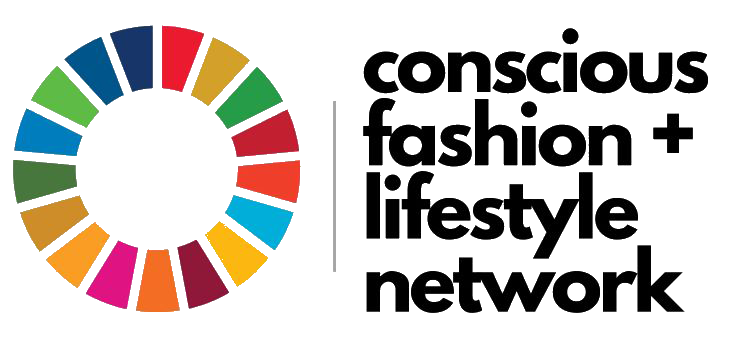Success story – Siraya Chunekamrai
‘I got to know Pei and I was very intrigued. I thought, wow, her job is humungous, and I thought if she can change China, she can change the world!’.
Dr. Siraya Chunekamrai is a truly remarkable lady. From humble beginnings in Thailand, to studying at Cornell University, to being the first female President of World Small Animal Veterinary Association (WSAVA), Siraya is a true inspiration to animal owners globally.
ACTAsia first met with Siraya in 2017 at an ‘Asia for Animals’ conference when CEO and founder, Pei Su, introduced her to our work with vets and animals across Asia. Since then, the partnership has flourished. We caught up with Siraya to find out more about her passions, vision and how she supports ACTAsia.

Living with 30+ stray animals gave Siraya the inspiration to help animals worldwide
Siraya was born in Bangkok and graduated from Kasetsart University in veterinary science. A graduate research assistant position for a PhD at Cornell University followed where she focused on equine studies. Siraya had the opportunity to continue her work at Cornell but felt that her true calling was in Thailand where she knew that she could make a real difference. Growing up, Siraya spent a lot of time at her grandfather’s house which he shared with over 30 stray mongrels and it was very clear to her from a young age that unless kind people, looked after stray animals, it would lead to animal suffering. She attributed this neglect to human ignorance and knew that her mission was to save animals and educate others surrounding animal welfare.
Siraya soon opened her own veterinary practice in Bangkok which was the first hospital to have gas anaesthesia and proper sterilisation equipment and in 1996, she opened the country’s first equine surgery, the ‘The Horsepital’, in a province three hours from Bangkok.
Taking on role as President for WSAVA and championing women and diversity
WSAVA represents more than 200,000 veterinarians worldwide through its 113 member associations, and works to enhance standards of clinical care for companion animals. At her first assembly meeting Siraya felt that that ‘World Association’ did not truly reflect world members when she witnessed little representation from Asia or women in leadership roles. Siraya has pioneered and encouraged greater diversity at the organisation has inspired vets from developing countries to see the benefit of WSAVA in assisting with self-development and professional development in their regions.
How did Siraya become involved with ACTAsia?
Siraya said meeting Pei at the ‘Asia for Animals’ conference was an impactful moment: ‘I got to know Pei and I was very intrigued. I thought, wow, her job is humungous, and I thought if she can change China, she can change the world!’. Recognising the huge potential benefits of working together, Siraya knew that WSAVA and ACTAsia were a natural fit: ‘I think it’s very important to find your strategic partners and to find those people who have the same ‘why’ and support each other. I hope we can support ACTAsia even more in the future’. ACTAsia is one of WSAVA’s educational partners providing educational activities for their members as they understand the huge need for speakers and trainers in the veterinary profession.

What have ACTAsia and WSAVA achieved together so far?
To date, ACTAsia has made tremendous inroads in helping vets in to China access essential animal welfare methods. ACTAsia has translated and made available WSAVA’s Global Pain Guidelines in a fantastic outreach to Chinese veterinarians. ACTAsia has also advocated for an inspirational campaign: “Pain Free China 2020” to create awareness surrounding animal pain assessment and management for veterinarians. The use of global pain guidelines is essential so that every country has the same standard and it provides information about alternative drugs if certain drugs cannot be sourced. Siraya’s vision is to create one community, one standard and one voice.
As Siraya adds: ‘ACTAsia’s work is not only about humane education for children but also about the continuing education of the veterinary profession.’
What impresses Siraya about ACTAsia’s work and why is it important?
Siraya is very much focused on the importance of compassion and empathy which is at the core of ACTAsia’s work. As Siraya explains: ‘When you talk about kindness and compassion, I do think that both those elements are the heart of human existence. If we recognise these qualities in each and every human being, then we won’t have to fix anything. When your essential being is one of kindness and compassion you will automatically know what you should or shouldn’t be doing.’
She goes on to explain how these values mirror the work at ACTAsia and WSAVA: ‘That’s why the work of ACTAsia is so important – ACTAsia is creating positive change, not fixing the broken world. Like ACTAsia, I work on human behavioural change and addressing the root cause of animal abuse which is human led. As vets we want to look at the bigger picture and ask why are we simply treating animals when we can also be treating the human mindset towards animals.’

What are the biggest challenges facing the veterinary profession in Asia?
Siraya comments: ‘Interestingly vets are very similar to one another no matter where you are in the world: we face the same challenges and we speak the same language’.
One of the major challenges is the availability of therapeutics. It is difficult to get hold of pain medication such as Ketamine in many Asian countries and many drugs take a long time to be registered or approved – for example, very common drugs regularly used in the UK can take years to be approved for use in Asia. This is why WSAVA’s Global Pain Guidelines is so vital to vets globally. As Siraya adds: ‘To me it’s about respect for life. How can you allow animals to suffer?’
What next for Siraya and Siraya and ACTAsia?
Historically, the veterinary profession has struggled with its status and being accepted as part of the medical profession or having the same status as medical doctors. However, Siraya feels that: ‘We should never position ourselves in the sickness industry, we’re in the wellness industry – that’s why there’s companion animals because animals bring us joy.’ Spreading ACTAsia’s vision of care and respect for animals, people and the environment will lead to a more compassionate world for all and who better to champion this vision than Siraya – the incredible President of WSAVA.
![ACTAsia [logo]](https://www.actasia.org/wp-content/themes/ACTAsia-2022-theme/assets/img/actasia-en-colour.svg)



